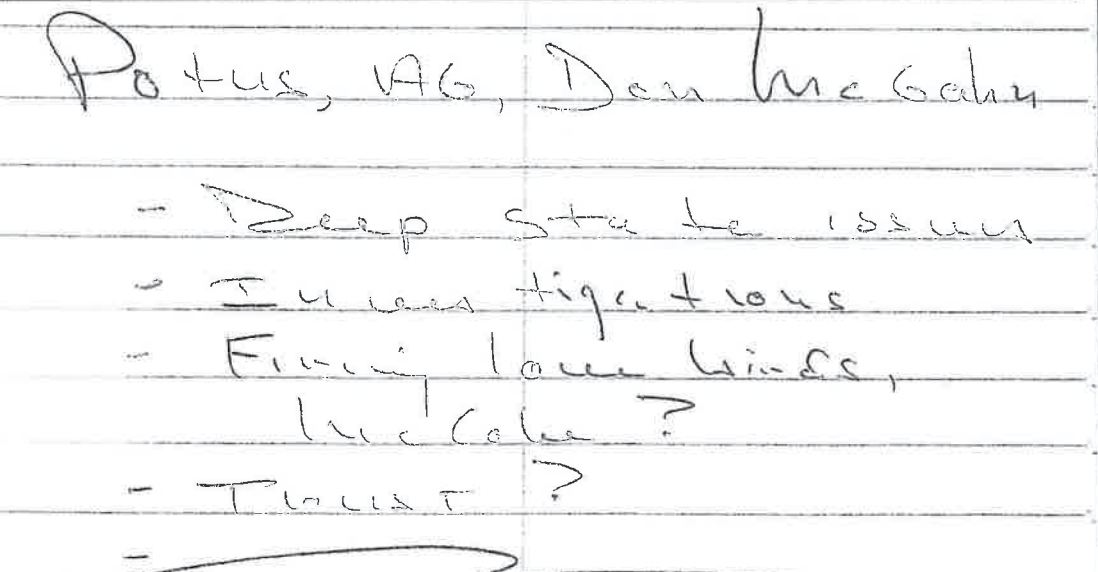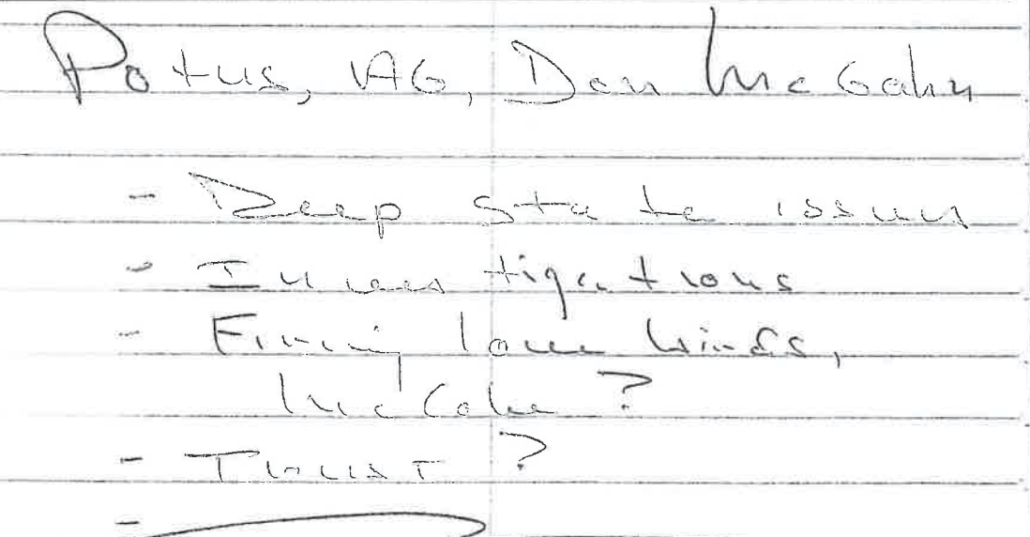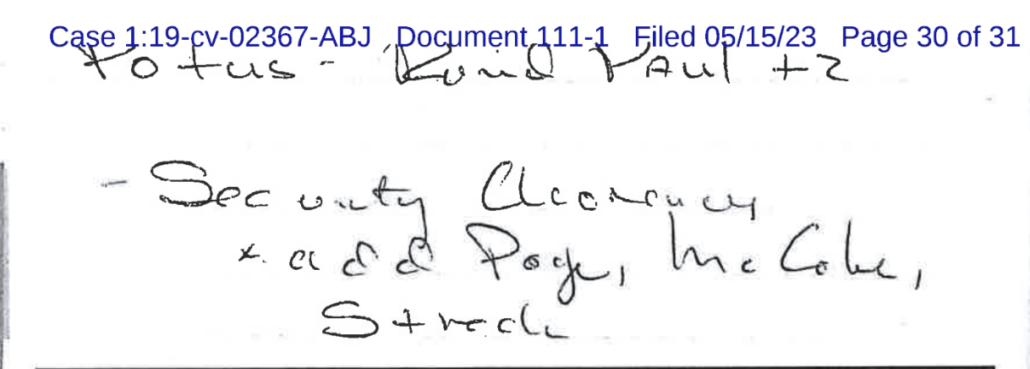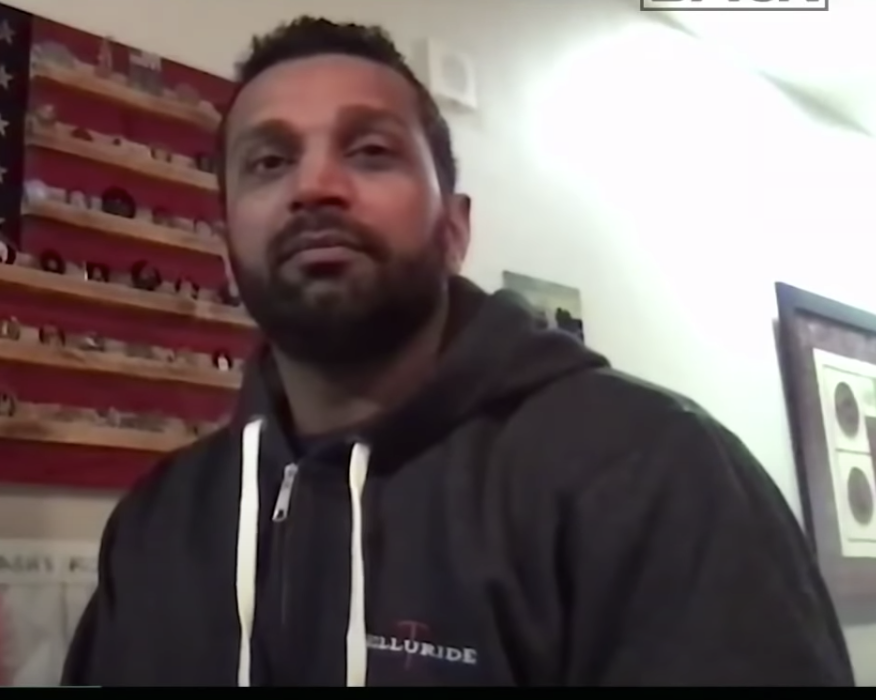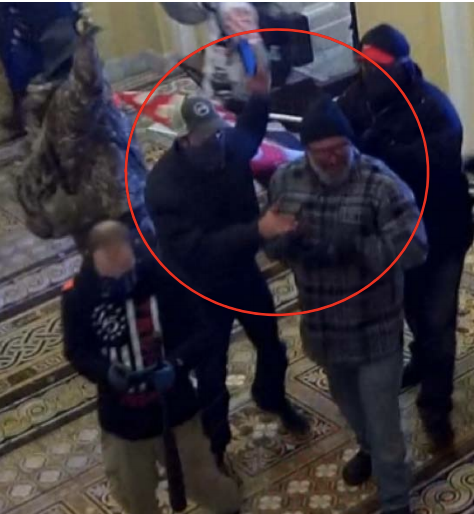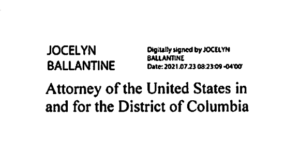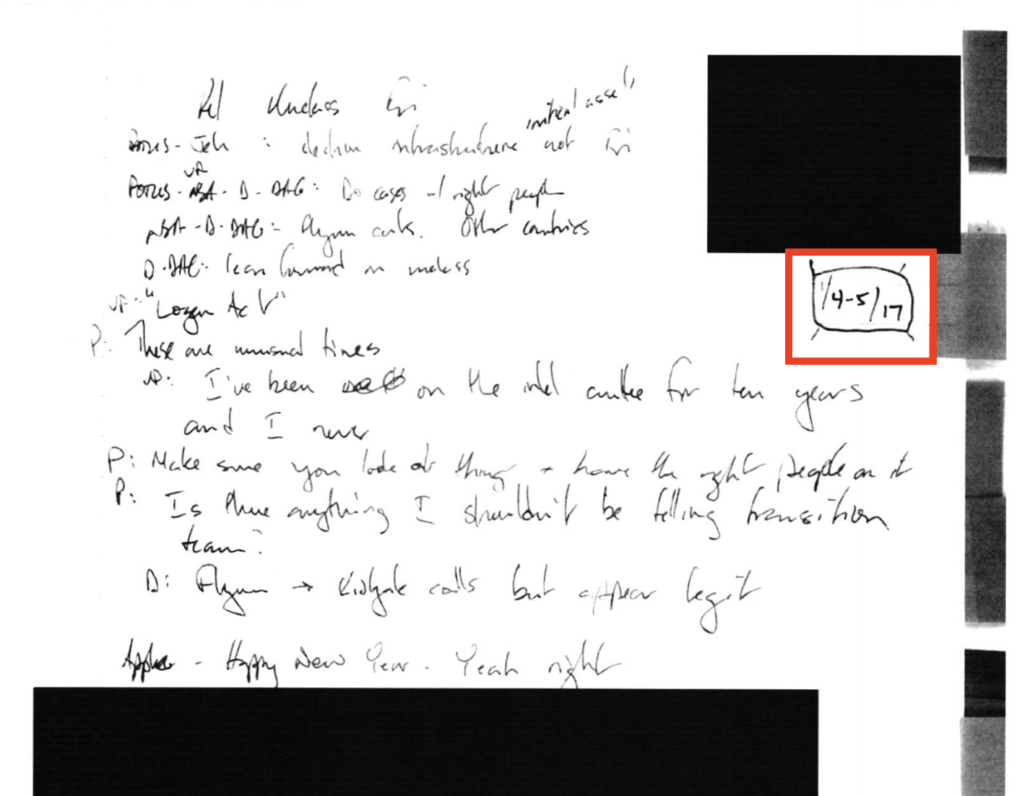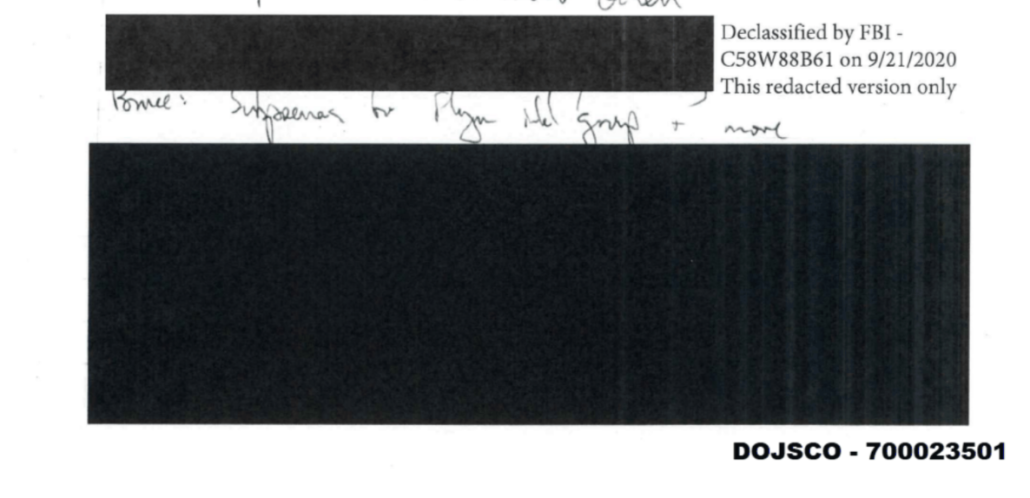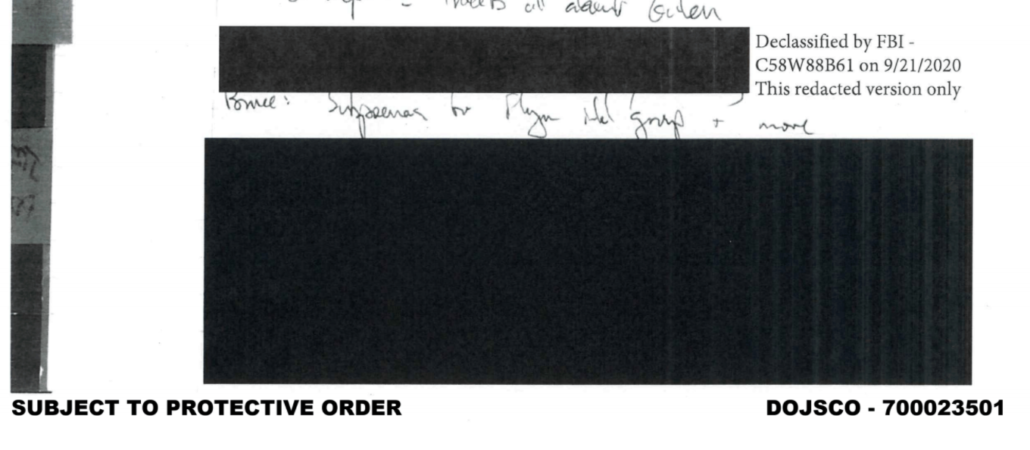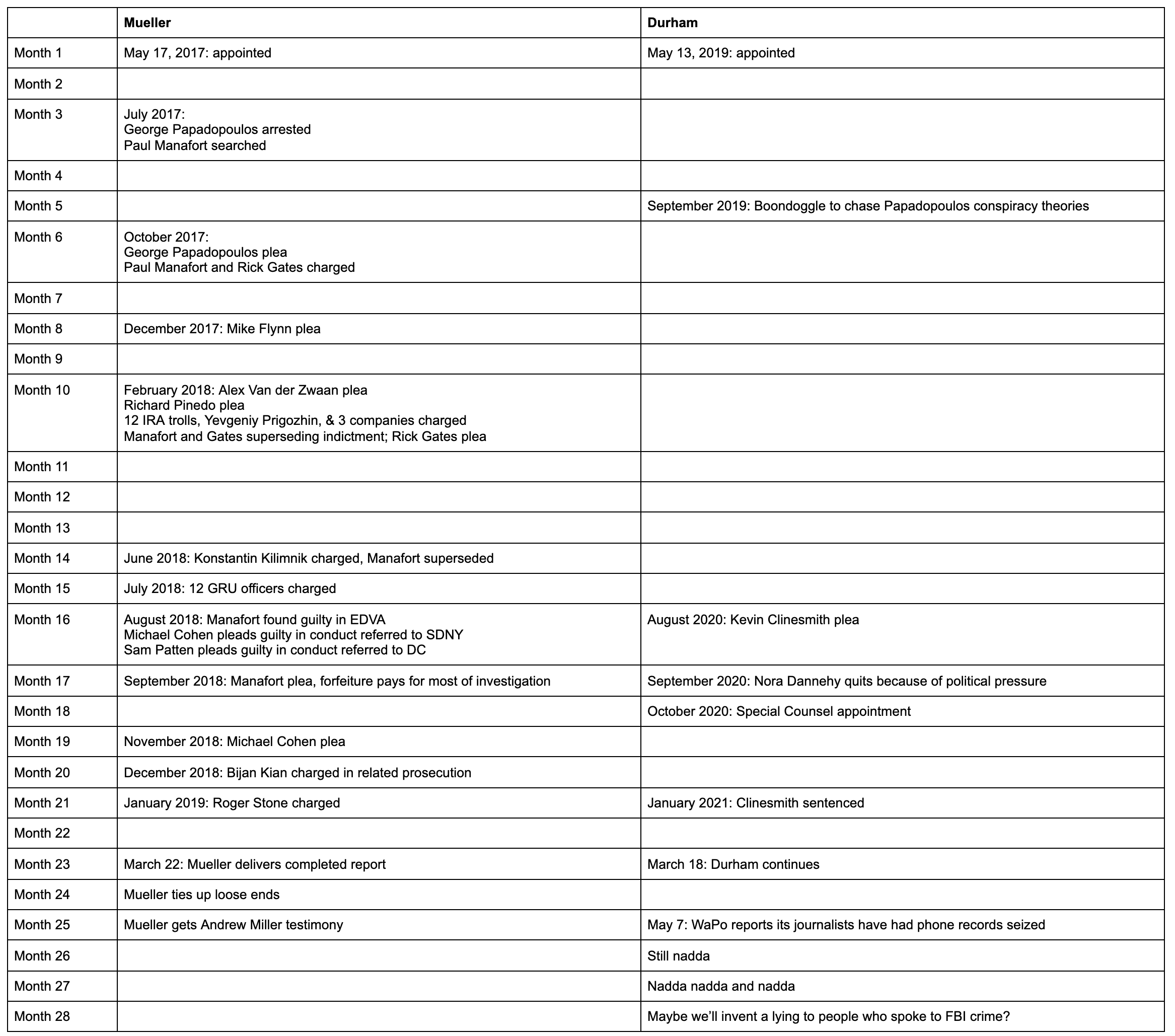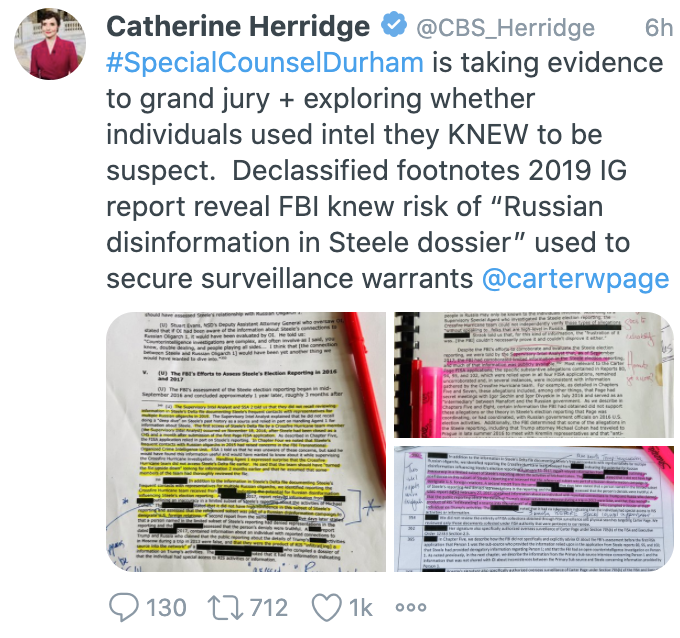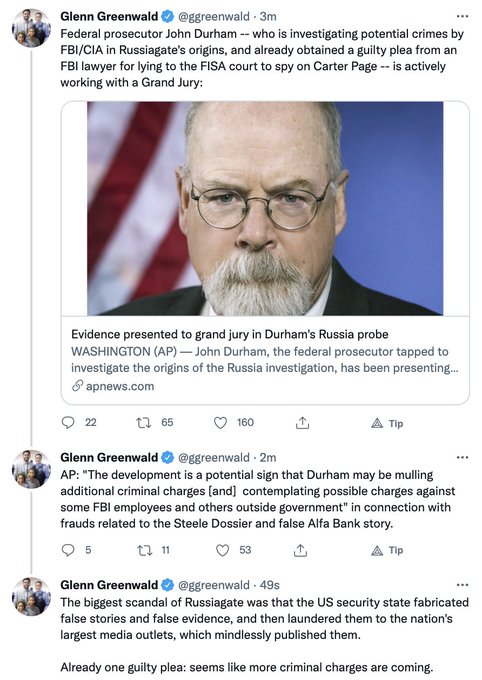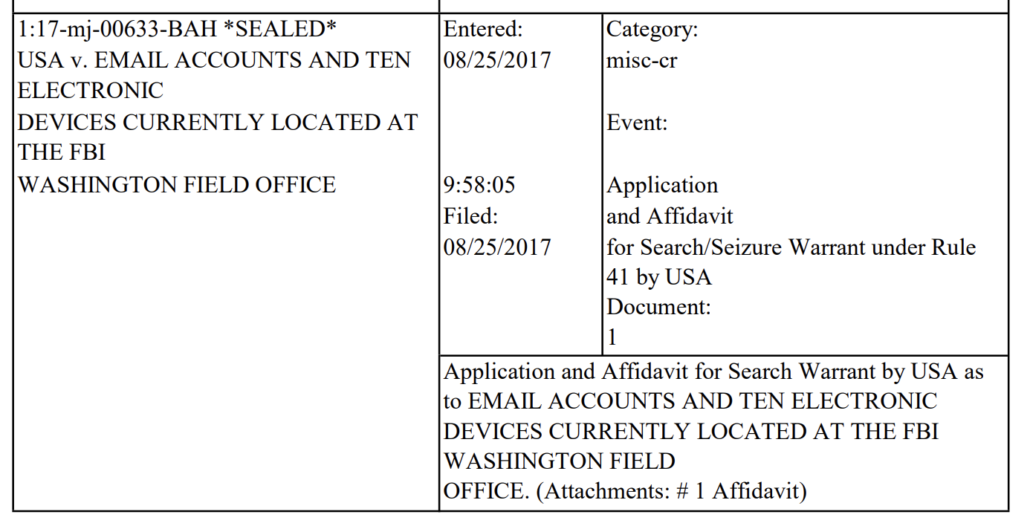Back in 2019, when John Durham undercut DOJ Inspector General Michael Horowitz’s conclusion that, for all the problems in the Carter Page FISA, the investigation itself was properly predicated and there was no evidence that the investigation into Trump’s associates had been politicized, Durham pointed to what he claimed was the broader scope of his own investigation that gave him reason to believe the predication was not clearcut.
I have the utmost respect for the mission of the Office of Inspector General and the comprehensive work that went into the report prepared by Mr. Horowitz and his staff. However, our investigation is not limited to developing information from within component parts of the Justice Department. Our investigation has included developing information from other persons and entities, both in the U.S. and outside of the U.S. Based on the evidence collected to date, and while our investigation is ongoing, last month we advised the Inspector General that we do not agree with some of the report’s conclusions as to predication and how the FBI case was opened.
Durham pointed both to his review of other agencies — such as the CIA review he has now completed without results — and the boondoggles he took with Billy Barr overseas as the basis (he claimed) to know more than Michael Horowitz.
Durham’s statement came shortly after he obtained two Blackberries — one dating to 2011 and the other to 2014 — that once belonged to Joseph Mifsud. By all reports, the George Papadopoulos conspiracy theories that Barr and Durham were chasing on the trip to Italy where they got those phones amounted to nothing. Taxpayers paid for Durham to fly overseas to collect information that predates the Russian operation by years, all because a sworn liar invented excuses for his crime after the fact.
It’s not that Horowitz ignored the Coffee Boy’s conspiracy theories. Rather than taking a junket to Italy to rule out Papadopoulos’ fevered speculation, Horowitz just looked in the FBI’s informant database and called the CIA.
164 During October 25, 2018 testimony before the House Judiciary and House Committee on Government Reform and Oversight, Papadopoulos stated that the source of the information he shared with the FFG official was a professor from London, Joseph Mifsud. Papadopoulos testified that Mifsud provided him with information about the Russians possessing “dirt” on Hilary Clinton. Papadopoulos raised the possibility during his Congressional testimony that Mifsud might have been “working with the FBI and this was some sort of operation” to entrap Papadopoulos. As discussed in Chapter Ten of this report, the OIG searched the FBI’s database of Confidential Human Sources (CHS), and did not find any records indicating that Mifsud was an FBI CHS, or that Mifsud’s discussions with Papadopoulos were part of any FBI operation. In Chapter Ten, we also note that the FBI requested information on Mifsud from another U.S. government agency, and received a response from the agency indicating that Mifsud had no relationship with the agency and the agency had no derogatory information on Mifsud.
[snip]
484 Papadopoulos has stated that the source of the information he shared with the FFG was a professor from London, Joseph Mifsud, and has raised the possibility that Mifsud may have been working with the FBI. As described in Chapter Ten of this report, the OIG searched the FBI’s database of Confidential Human Sources (CHSs) and did not find any records indicating that Mifsud was an FBI CHS, or that Mifsud’s discussions with Papadopoulos were part of any FBI operation. The FBI also requested information on Mifsud from another U.S. government agency and received no information indicating that Mifsud had a relationship with that agency or that the agency had any derogatory information concerning Mifsud.
This comparison is one reason it is so damning that Durham just admitted that he never sought to obtain (and falsely claims he never knew about) two phones formerly used by James Baker that were in the custody of DOJ IG all that time.
[I]n early January 2022, the Special Counsel’s Office learned for the first time that the OIG currently possesses two FBI cellphones of the former FBI General Counsel to whom the defendant made his alleged false statement, along with forensic reports analyzing those cellphones. Since learning of the OIG’s possession of these cellphones, the Government has been working diligently to review their contents for discoverable materials. The Government expects to make those materials available to the defense later this week.
The John Durham investigation made a big effort to obtain two dated phones based on a conspiracy theory, but didn’t even seek to obtain phones he should have known were in DOJ possession before indicting someone based off the single witness testimony of that person. Crazier still, in an update to the Court, Durham admitted that he learned but then forgot that Horowitz had obtained one of them during his prior investigation of Baker for a suspected leak.
This is not the only damning admission of investigative negligence in John Durham’s request for an extension of the deadline — which turns out to be a request for the deadline he originally requested — for what he calls discovery (but what is actually basic investigative steps he should have taken long before indicting Sussmann).
For example, in his indictment of Michael Sussmann, Durham gives the impression that Rodney Joffe only obtained data from the US in 2016 to hunt down damning data about Donald Trump. But in response to a Sussmann request, Durham conducted a review of all the 17,000 unclassified emails involving the email domain from one of Joffe’s companies, finding 226 from 2016 alone that pertain to this issue. As Sussmann has argued, lying to hide Joffe’s involvement in this would be counterproductive given how closely he works with FBI.
[T]o the extent the Indictment alleges that the FBI General Counsel and FBI might have done various things like ask “further questions,” taken additional or more incremental steps,” “allocated its resources differently or more efficiently,” or “uncovered more complete information” but for Mr. Sussmann’s purported false statement, the Special Counsel should be required to particularlize those potential questions, additional steps, resource allocations, or more complete information. Id. This is particularly necessary because [Joffe] — far from being a stranger to the FBI — was someone with whom the FBI had a long-standing professional relationship of trust and who was one of the world’s leading experts regarding the kinds of information that Mr. Sussmann provided to the FBI. The notion that the FBI would have been more skeptical of the information had it known of Tech Executive-1’s involvement is, in a word, preposterous.
Similarly, the indictment makes much of the fact that Sussmann shared information with the NYT that ultimately led to an infamous October 31 story. It suggests without evidence that Sussmann — or even the Congressional sources who obviously played a role in the story — were the only ones pushing the Alfa Bank story to the NYT. It further suggests, falsely, that all the material NYT obtained on Alfa Bank came from Joffe’s effort. Crazier still, until Sussmann asked, Durham hadn’t pulled the details from a meeting the FBI (one that included James Baker and Bill Priestap, almost certain to be witnesses at Sussmann’s trial) had with the NYT.
On September 27, November 22, and November 30, 2021, the defense requested, in substance, “any and all documents including the FBI’s communications with The New York Times regarding any of [the Russian Bank-1] allegations in the fall of 2016.” In a subsequent January 10, 2022 letter, the defense also asked for information relating to a meeting attended by reporters from the New York Times, the then-FBI General Counsel, the then-FBI Assistant Director for Counterintelligence, and the then-FBI Assistant Director for Public Affairs. In response to these requests, the Special Counsel’s Office, among other things, (i) applied a series of search terms to its existing holdings and (ii) gathered all of the emails of the aforementioned Assistant Director for Public Affairs for a two-month time period, yielding a total of approximately 8,900 potentially responsive documents. The Special Team then reviewed each of those emails for relevant materials and produced approximately 37 potentially relevant results to the defense.
Pulling these records would have been just the first step Durham should have taken to figure out what other entities might have been pushing this story to the NYT and what specific allegations those entities were pushing to test some of the insinuations Durham makes in the indictment. Yet Durham never thought to look for these records before he indicted Sussmann.
Still, Durham’s failure to do anything to understand what DOJ IG had done in its parallel investigation is the most remarkable.
Before Durham was formally appointed, Billy Barr’s top aide Seth DuCharme seemed to be attempting to deconflict the investigation by bringing the two men together to talk about scope.
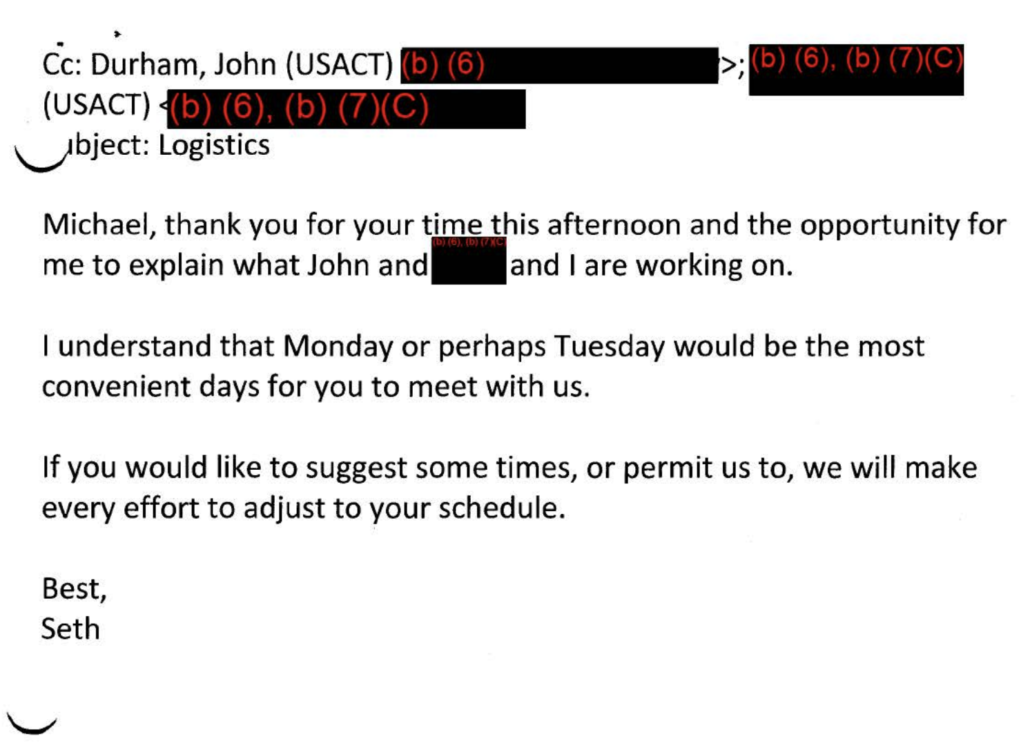
Perhaps Durham’s public rebuke of Horowitz undermined any cooperation since then (though Durham was certainly happy to take the Kevin Clinesmith case that Horowitz had wrapped up in a bow and claim it as his only visible sign of life for years).
But according to Durham’s filing, he didn’t reach out to Horowitz’s office until three weeks after indicting Sussmann (and perhaps more importantly, less than four weeks before indicting Igor Danchenko, in whose prosecution the DOJ IG investigation plays a central role). Durham presents his team reaching out to another unit at DOJ that he knew to have relevant material as some great feat of diligence rather than something he should have done years earlier.
On October 7, 2021, at the initiative of the Special Counsel’s Office, the prosecution team met with the DOJ Inspector General and other OIG personnel to discuss discoverable materials that may be in the OIG’s possession. The Special Counsel’s office subsequently submitted a formal written discovery request to the OIG on October 13, 2021, which requested, among other things, all documents, records, and information in the OIG’s possession regarding the defendant and/or the Russian Bank-1 allegations. The Special Counsel also requested any transcripts or other documents within the OIG’s possession containing certain search terms. In response, the OIG provided, and the Government has produced to the defense in redacted form, relevant transcripts of interviews conducted by the OIG during its review of the FBI’s Crossfire Hurricane investigation.
That’s what led Durham to discover, for the first time, the anonymous tip of the same sort — weird forensic data discovered by Joffe — that Sussmann shared with DOJ IG in the same time period Durham was investigating.
It wasn’t until Durham asked the FBI Inspection Division for call data associated with Baker’s phone this month that they told him — because Durham had apparently never asked, not even given the endless focus on Peter Strzok and Lisa Page texts Horowitz obtained way back in 2017 — that DOJ IG had two phones that Baker had used. After Durham publicly claimed not to have known about the phones, DOJ IG then informed him that he learned DOJ IG obtained one of them in 2018 during a different investigation of Baker.
Durham’s belated outreach to DOJ IG may in fact be what first led Durham to discover the interview DOJ IG did with Baker on July 15, 2019 — shortly after deconfliction meetings in advance of Durham’s appointment — in which Baker said something that materially conflicts with the statements Baker has made to Durham, statements that in fact confirm Sussmann’s story.
Durham also obtained a transcript — the only one he provided to Sussmann in unredacted form — about some other investigation that Horowitz is currently conducting.
the transcript of an interview conducted by the DOJ Office of Inspector General in connection with an administrative inquiry that is currently ongoing;
And now, part of the reason Durham is asking for a delay in his existing deadline is that requests of Horowitz he should have made at the beginning of any investigation into whether Sussmann falsely set up Trump are proving too onerous for DOJ IG (which is working on a slew of reports on events that aren’t five years past) to do on their own.
Third, in January 2022, the OIG informed the Special Counsel’s Office for the first time that it would be extremely burdensome, if not impossible, for the OIG to apply the search terms contained in the prosecution team’s October 13, 2021 discovery request to certain of the OIG’s holdings – namely, emails and other documents collected as part of the OIG’s investigation. The OIG therefore requested that the Special Counsel’s Office assist in searching these materials. The Government is attempting to resolve this technical issue as quickly as possible and will keep the defense (and the Court as appropriate) updated regarding its status.
At this point, four months after indicting Michael Sussmann and two years after claiming he knew better than Michael Horowitz, Durham doesn’t know whether he even consulted the same records that Horowitz did.
As noted, if the same is true with respect to the Danchenko case, it is potentially lethal to Durham’s case, because his investigative theory (which is that Danchenko is responsible for FBI’s failure to act on problems with the dossier) is fundamentally incompatible with Horowitz’s (which is that it was FBI’s fault for not acting).
Durham does know, however, that he didn’t consult something that Horowitz did: Baker’s actual phones.
And that may have a real impact at trial.
At a status conference, Durham’s prosecutors dismissed the possibility that they had bullied Baker into telling the story they wanted him to tell on threat of prosecution: that Sussmann affirmatively lied about having a client, which conflicts with several other claims he had previously made under oath. They said (in a scheduling motion), instead, that once Durham’s prosecutors refreshed Baker’s memory with notes from Bill Priestap and someone else he spoke with after the Sussmann meeting, Baker remembered that Sussmann had actually affirmatively lied.
Mr. Baker made these statements before he had the opportunity to refresh his recollection with contemporaneous or near-contemporaneous notes that have been provided to the defense in discovery. Indeed, the defendant’s motion entirely ignores law enforcement reports of Mr. Baker’s subsequent three interviews with the Special Counsel’s Office in which he affirmed and then re-affirmed his now-clear recollection of the defendant’s false statement.
Effectively, they claimed they had better information when questioning Baker than anyone previously had.
Durham is going to have to present that to the jury, probably through the testimony of one of the FBI agents involved.
But that claim only works if Durham’s team had a more complete record than Horowitz’s team did when they asked the same questions. Durham doesn’t know whether that’s true or not yet, because he never bothered to figure out what Horowitz had. The delay Durham wants to do investigative work he should have done years ago is a delay, in part, to see whether that claim has any basis in fact. (And at least in December, Durham had only provided a heavily redacted transcript of what went on between Baker and the IG.)
All parties know one thing, however: That when Horowitz conducted questioning of Baker in 2019 about this topic, unlike Durham, he had consulted with Baker’s own phone. Durham can no longer claim to have been more thorough than Horowitz, because he just admitted he didn’t even bother consulting Baker’s phones and is only now getting around to checking what else Horowitz might have consulted that he did not.
John Durham indicted Michael Sussmann on the last possible day he could have under the statutes of limitation. And now, he’s asking for a delay in discovery deadlines (if not a delay in Sussmann’s trial), so he can do basic investigative work he should have done before the statutes of limitation tolled.
Update: Judge Cooper has granted Durham’s extension.
Update: Holy shit it gets better! Durham just had to admit that, in an earlier investigation of Baker, he learned DOJ IG had obtained this phone.
After reviewing the Special Counsel’s Office’s public filing, the DOJ Office of Inspector General (“OIG”) brought to our attention based on a review of its own records that, approximately four years ago, on February 9, 2018, in connection with another criminal investigation being led by then-Acting U.S. Attorney Durham, an OIG Special Agent who was providing some support to that investigation informed an Assistant United [sic] Attorney working with Mr. Durham that the OIG had requested custody of a number of FBI cellphones. OIG records reflect that among the phones requested was one of the two aforementioned cellphones of the then-FBI General Counsel. OIG records further reflect that on February 12, 2018, the OIG Special Agent had a conference call with members of the investigative team, including Mr. Durham, during which the cellphones likely were discussed. OIG records also reflect that the OIG subsequently obtained the then-FBI General Counsel’s cellphone on or about February 15, 2018. Special Counsel Durham has no current recollection of that conference call, nor does Special Counsel Durham currently recall knowing about the OIG’s possession of the former FBI General Counsel’s cellphones before January 2022.
This post has been updated to reflect how Durham learned he already knew of the phones.
Timeline of Sussmann discovery
September 16, 2021: Michael Sussmann indictment
September 27: Sussmann asks for:
- All evidence from wiretaps or eavesdropping (there appears to be none)
- All communications regarding Sussmann’s security clearance reviews (900 pages)
- Any documents pertaining to FBI treatment of anonymous tips (with repeated follow-ups)
- All FBI communications with the NYT regarding Alfa Bank allegations in 2016 (with repeated follow-ups)
- Materials regarding relationship between Joffe’s companies and government agencies; FBI results for 2016 result in 226 emails
October 7: Durham team meets with DOJ IG to discuss discoverable material in DOJ IG possession
October 13: Durham issues a formal discovery request to DOJ IG
October 13: Sussmann asks for Priestap’s notes
October 20: Sussmann reviews Priestap’s notes
October 25: Sussmann reply memo reveals he still hasn’t received taxi billing records and other identifiable Brady material, including an “unclassified grand jury testimony of an immunized witness, that either exculpate[s] Mr. Sussmann or conflict[s] with the core allegations that the Special Counsel has made against him”
October 29: Sussmann’s team obtains clearance
November 3: Igor Danchenko indictment
Week of November 15: Durham turns over some, but not all, of Baker’s statements, including conflicting DOJ IG fragment
November 22: Sussmann follow-up on request for FBI communications with NYT; after previously accepting June trial date, Durham proposes July 25
November 30: Sussmann follow-up on request for FBI communications with NYT; says Durham is missing some of the CIA employees in February 9, 2017 meeting
December 6: Sussmann moves for trial date, describing that Durham needs four more months for discovery
December 7: Durham response; Sussmann first gets Baker grand jury transcripts; just three grand jury transcripts provided by that point
December 8: Status conference at which Sussmann attorney reveals they’ve just seen Baker grand jury transcript
December 10: Sussmann asks for records “any records reflecting any consideration, concern, or threats from your office relating to those individuals’ or their counsels’ conduct. . . and all formal or informal complaints received by you or others”
December 14: Scheduling order
December 17: DOJ IG gives Durham forensic report arising from previous Sussmann tip
December 23: Durham gives Sussmann forensic report from DOJ IG tip
Early January 2022: OIG says it can’t get through the discovery on Crossfire Hurricane investigation by itself
January 5: Durham asks FBI Inspection Division about call log data for Baker’s phone
January 6: FBI Inspection Division tells Durham that DOJ IG has Baker’s phones
January 7: Durham asks DOJ IG about the phones
January 10: DOJ IG provides the information on Baker’s phones; Sussmann asks for information regarding meeting with NYT, James Baker, Bill Priestap, and Michael Kortan (result did not come up on searches, so Durham had to search through 8,900 pages of Kortan’s records, resulting in 37 results)
January 20: Durham asks to have until “the end of March” for discovery (effectively, his originally requested deadline); Sussmann tells Durham he met with DOJ IG in person in March 2017 about anonymous tip
January 21: Sussmann response agreeing to February 11; DOJ IG confirms they did meet with Sussmann
January 25: Durham submits filing claiming he never knew DOJ IG had Baker’s phones (in response DOJ IG reminds Durham he already knew of one of the phones)
January 26: DOJ IG provides second forensic reports on the phones to Durham
January 28: Unclassified discovery originally due; Cooper grants extension to March 18 in the morning; Durham provides initial forensic reports to Sussmann and then (at 11:52PM) informs court he had previously been informed of Baker’s phone years ago
February 11: Classified discovery due
February 18: Motion to Dismiss due
March 18: 404(b) and remaining Jencks and Giglio due
March 25: Durham’s initial and second requested discovery deadline
May 16: Existing trial date

